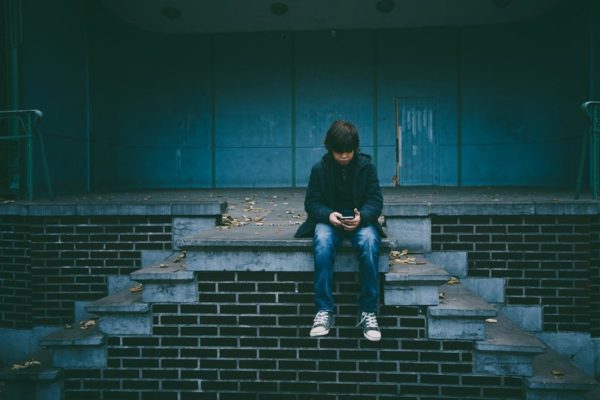Doing nothing is tough. When we’re too busy or overtired, it sounds like fun. But a steady diet of doing nothing gets boring fast. Most of the time, “doing nothing” and “not doing anything” are the same. Right now, they’re opposites.
Not doing anything means ignoring the need for social distancing and minimizing the threat posed by the coronavirus. But doing nothing, according to public health experts, is our best shot to keep ourselves, our families and our communities healthy during the COVID-19 pandemic.
Doing nothing feels different for different people. For some of us, it is downright terrifying. Millions of Americans are stuck at home without a paycheck, worried about paying the bills and putting food on the table. Yes, the government has passed a $2 trillion disaster relief bill, but for millions of idled workers, skills that are the backbone of our economy have become dangerous to the national well-being.
Those with jobs that can be done from home can at least pay their bills. But many working people feel overwhelmed by guilt and sorrow because they feel like they aren’t doing enough to help. Unsatisfying though it may be, “doing nothing” is one of the best ways we can support people working front line jobs in grocery stores, trucking and delivery services, and of course, doctors and nurses. Don’t buy three packages of toilet paper when one is enough. Don’t stockpile masks or disposable gloves.
Working parents who can do their jobs from home are not doing nothing. Instead, they are now juggling three different full-time roles: being a parent, being a teacher and their regular jobs. The kind of advice being offered to overwhelmed working parents can help the rest of us, too. Accomplishing anything right now takes more energy than usual. If all we can do is lie on the couch and watch movies, that’s fine, whether we’re 6 years old, or 36 or 86. Our most important goal is to stay healthy. Staying at home doing nothing may well be the best way to do that.
This is hard. Most of us need to see concrete results of our actions to feel like we’ve done something. And we’re never going to see the bad outcomes that “doing nothing” avoided. If we don’t see any effect of our actions – we ourselves don’t get sick, or fewer people than expected fall ill in our town or state – we might think that we overreacted. But we didn’t. In fact, the opposite is true. No visible result is the goal of doing nothing.
We can’t expect any individual recognition or thanks for the nothing we do, either. Social distancing works because we all do it together. There are no individual heroes in social distancing. No one can see a direct connection between the party they didn’t go to on Saturday night and the rate of new COVID-19 infections in their county. The more of us who participate in social distancing, the better it works for everyone. All of us are the heroes together.
And when we all stay home, we get results. Recent data show that widespread measures requiring people to shelter in place are reducing the rate of fevers across much of the country. But milder steps like advising people to avoid large groups have no visible effect on the spread of the coronavirus. Required social distancing in Seattle has halved the rate at which each sick person transmits the virus to others.
This is what “flatten the curve” looks like. It doesn’t mean that no more people will fall ill. It doesn’t mean we can go back to our favorite restaurants next week. It certainly doesn’t mean that public officials have overreacted in calling for a nationwide order to shelter in place. It means we’re doing the right thing by doing nothing.
Americans across the country are doing the dull, frightening and necessary work of staying at home and doing nothing. But no one should make the mistake of thinking that doing nothing is not doing anything. For the time being, doing nothing is just what the doctor ordered.
Deborah Beck is an associate professor of classics at The University of Texas at Austin.
A version of this op-ed appeared in the San Antonio Express News, Waco Tribune Herald, Corpus Christi Caller Times, Austin American-Statesman, and the Amarillo Globe News.




